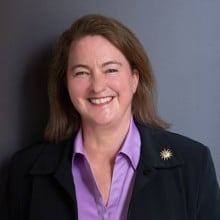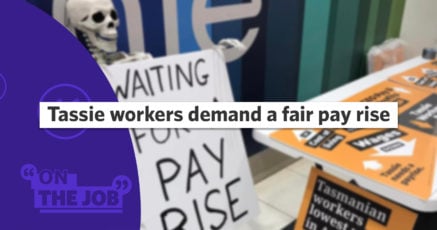Australia’s gender pay gap remains deeply entrenched thanks to a decade of indifference from the previous Liberal Government.
That’s according to the latest data released by the Workplace Gender Equality Agency (WGEA) this week.
The Wages and Ages: Mapping the Gender Pay Gap by Age data report shows that men out earn women across every generation. This peaks at ages 55 – 64, where men out earn women by more than $40,000 on average per year.
On average, women earn around $480 less per week than men, largely due to women shouldering the majority of care responsibilities and making up 61 per cent of workers reliant on Award and minimum wages.
The WGEA attributes 20 per cent of the pay gap problem to women-dominated industries in care and education being undervalued and underpaid.
The most significant shift in working patterns happens from age 35 onwards when men are predominantly working full-time and women are predominantly working part-time or casually.
Australian Council of Trade Unions President Michele O’Neil said the gender pay gap is emblematic of the disdain previous Liberal governments displayed on issues of gender equity.
“Women will continue to earn $483.30 per week less than men until we address the undervaluation and underpayment of women-dominated industries, including teaching, nursing, and care,” she said.
It is simply not good enough that women continue to be paid less than men in this country. We should have made progress in the last decade under Coalition Governments, but instead we went backwards from 14th to 70th place on the global gender pay gap index.
Michele O’Neil
ACTU President

WGEA Director Mary Wooldridge told On the Job that the pace of bridging the gender pay gap remains unacceptably slow.
“What we’re seeing is, year on year, a very slight reduction in the gender pay gap. But the rate of change is glacial, it is so slow,” Wooldridge said.
Wooldridge said that the latest dataset maps the changes in the gender pay gap throughout the working lives of women. It shows that there are crucial periods as women move through their working lives where the pay gap alters. “The data gave us an insight that we hadn’t had before about how that gender pay gap differs in different ages and stages of life,” she said.
“We effectively have a reasonably small gender pay gap at the start of careers, but It’s very significant by the later stage of careers at the ages of 45 to 64, which should be peak earning capacity time. At that point we see a gender pay gap of over 30% and that translates into over $40,000 [per annum].”
The consequences of that disparity in pay for women’s financial security are dire, according to Wooldridge.
“The gender pay gap is the largest determinant of the gender superannuation gap and retirement savings.”
The biggest contributor to fixing the retirement savings gap is fundamentally addressing the gender pay gap, because that’s income and earnings year in year out [being lost] over an entire career. Superannuation is largely determined on the basis of those dollar figures.
Mary Wooldridge
WGEA Director

Having lost a decade of progress under the previous Liberal government, working women are demanding an urgent policy reset to deal with the gender pay gap.
Michele O’Neil said the union movement has welcomed the action already taken by the Albanese Government in committing to providing 10 days of Paid Family and Domestic Violence but more work is required.
“Without accessible and affordable early childhood education and care, women are forced into insecure and low paid jobs. The fact that we have some of the most expensive early childhood education and care in the developed world is a huge contributing factor to the pay gap,” she said.
“We welcome the action that the Albanese Government has already committed to on Paid Family and Domestic Violence Leave but much more work is required to close the gap.”
“We look forward to working with the Government to include Gender Equity in the FWA, implement all of the Respect@Work report recommendations, prohibit pay secrecy and roll out public reporting of pay gaps by employers,” O’Neil said.







SHARE:
Gender pay gap remains a national shame